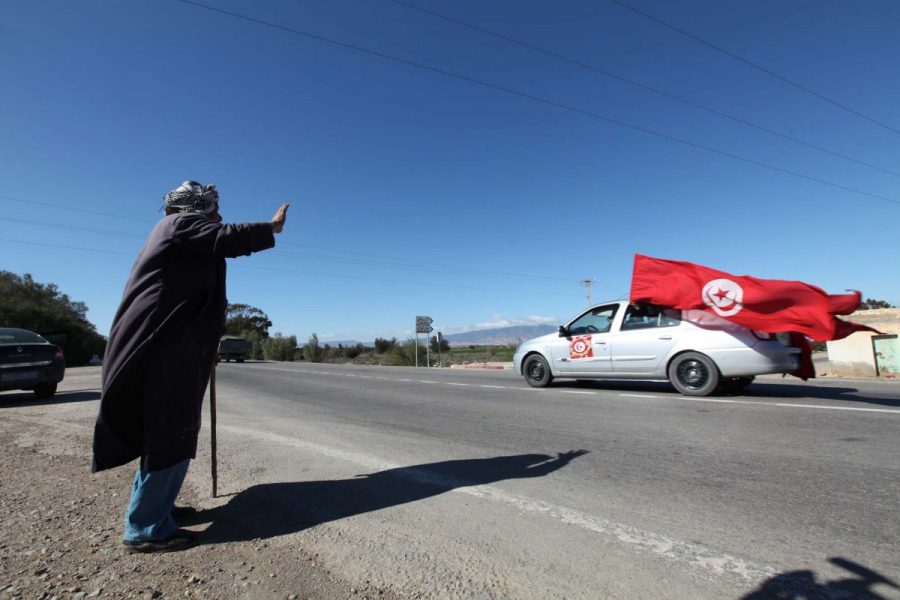Click here to view the original trailer.
Showing @ Filmhouse, Edinburgh, Sun 28 Oct only
Elyes Baccar / Tunisia/Switzerland/Qatar / 2011 / 96 min
One of the most challenging outcomes of the Arab Spring is the new social upheaval which faces the countries involved. While it has been a liberating experience for many nations, after decades of slow-cooked political oppression, how a country emerges into an organised democratic state has generated disagreement between young and old activists, academics, politicians and militants. Overthrowing regimes does not automatically guarantee freedom and Rogue Parole, the feature length documentary in this series of films, explores the territory.
Each film prompted by the Arab Spring inevitably portrays varying aspects of the uprising, from the violence shown in ½ Revolution to reflective questions about the future of countries such as Egypt and Libya in The Arab Awakening. Elyes Baccar’s Rogue Parole shows the debate in full force, poured out onto the streets of Tunisia and in public halls where speakers argue over how the movement should progress. In a way, Tunisia has been the catalytic symbol of the Arab Spring, not least because it began with the self-immolation of Mohamed Bouazizi on 17/12/10 but because these origins came from the smallest nation in North Africa.
Like so many other documentaries on this issue however, it suffers from its own subjectivity. The events that have taken place since 2010 are so transformative, it’s difficult for filmmakers to communicate the emotions and responses to them. But now, a lot of questions surround debate following action, about how to introduce fair systems of government (or other political structures), and Rogue Parole could focus on the future of Tunisia more directly. It shows citizens discussing how history dictates change, but external reflection could also contribute to the whole discussion. It is a fine insight into Tunisian response made by a skilled documentarian, but lacks the depth needed to sustain the discourse.
Rogue Parole was screened alongside Graffiti, a 4 min Libyan short expressing responses to the revolution through street art; Granny’s Flags, a 5 min short about an elderly Libyan woman who made and collected flags to symbolise identity; The Secret Room, a 5 min short about a Libyan caretaker who hid artefacts vital to the country’s heritage; and Bitter Return, a 4 min short about a Moroccan migrant worker who discusses Libya in its pre and post-revolution context.
Showing as part of Africa in Motion Film Festival 2012.
Follow Andrew on Twitter @ajlatimer.
ALTERNATIVE LISTINGS:
Andrew Stewart Cinema, Gilmorehill Centre (G12), University of Glasgow, Wed 31 Oct @ 9am
